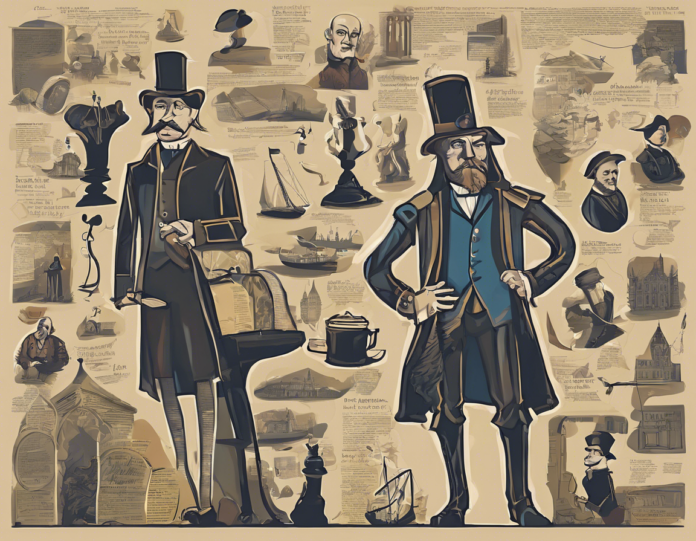Introduction:
Edward Albert is a significant figure in the history of English literature, and his impact can still be felt in modern literary circles. This comprehensive article seeks to delve into the life, works, and contributions of Edward Albert while analyzing his influence on the development of English literature.
Early Life and Education:
Born in 1801 in the picturesque town of Stratford-upon-Avon, England, Edward Albert showed an early affinity for literature and language. He was a voracious reader and excelled in his studies, eventually attending Cambridge University, where he studied English literature. It was during his time at university that Albert’s keen intellect and unique writing style began to emerge.
Literary Style and Themes:
Albert’s writing is characterized by its elegant prose, vivid imagery, and deep exploration of human emotions and relationships. He was a master of the romantic genre, often infusing his works with themes of love, loss, and the beauty of nature. His poems and prose captivated readers with their lyrical quality and emotional depth, establishing him as a prominent figure in the romantic literary movement.
Notable Works:
Among Albert’s most famous works is “Sonnet of the Rose,” a poignant poem that explores the fleeting nature of beauty and the passage of time. This piece, along with others such as “The Moonlit Sonata” and “Whispers of the Heart,” solidified Albert’s reputation as a poet of uncommon talent and vision. In addition to his poetry, Albert also dabbled in prose, penning several short stories and essays that showcased his versatility as a writer.
Legacy and Influence:
Despite his relatively short life, Edward Albert’s impact on English literature is enduring. His works continue to be studied and admired for their beauty and insight, and he remains a revered figure in literary circles. Albert’s influence can be seen in the works of subsequent generations of writers, who have been inspired by his poetic language and profound themes.
Criticism and Controversies:
Like many artists, Edward Albert was not without his critics. Some contemporary reviewers found fault with his sentimental style and accused him of being overly melodramatic in his depiction of love and nature. Additionally, there were rumors of a scandalous affair that tarnished Albert’s reputation in some quarters. However, these controversies have done little to diminish his legacy as a master of English literature.
Conclusion:
In conclusion, Edward Albert stands as a towering figure in the history of English literature, his works resonating with readers across generations. His poetic language, evocative imagery, and profound exploration of human emotions have cemented his place in the pantheon of great writers. As we continue to study and appreciate the works of Edward Albert, we are reminded of the enduring power of literature to inspire, move, and illuminate the human experience.
Frequently Asked Questions (FAQs):
1. What were Edward Albert’s major influences as a writer?
Edward Albert was heavily influenced by the romantic literary movement, drawing inspiration from poets such as William Wordsworth and Samuel Taylor Coleridge. He was also influenced by the natural beauty of his surroundings in Stratford-upon-Avon, which often found its way into his writing.
2. Did Edward Albert have any notable contemporaries in the literary world?
While Edward Albert was a somewhat solitary figure in the literary landscape, he did correspond with other writers of his time, including Mary Shelley and John Keats. These interactions helped to shape his own writing style and themes.
3. How did Edward Albert’s personal life influence his work?
Edward Albert’s personal life, including his experiences with love and loss, greatly influenced his writing. Many of his poems and stories are thought to be inspired by real-life events and emotions, lending them an authenticity and emotional depth that resonates with readers.
4. What themes are prevalent in Edward Albert’s works?
Themes of love, nature, beauty, and the passage of time are prevalent in Edward Albert’s works. He often explored the transient nature of human emotions and the enduring power of the natural world in his poetry and prose.
5. How has Edward Albert’s reputation evolved over time?
While Edward Albert faced some criticism during his lifetime, his reputation has only grown in the years since his death. Today, he is regarded as one of the finest poets of the romantic era, with his works being studied and celebrated for their lyrical beauty and emotional resonance.









